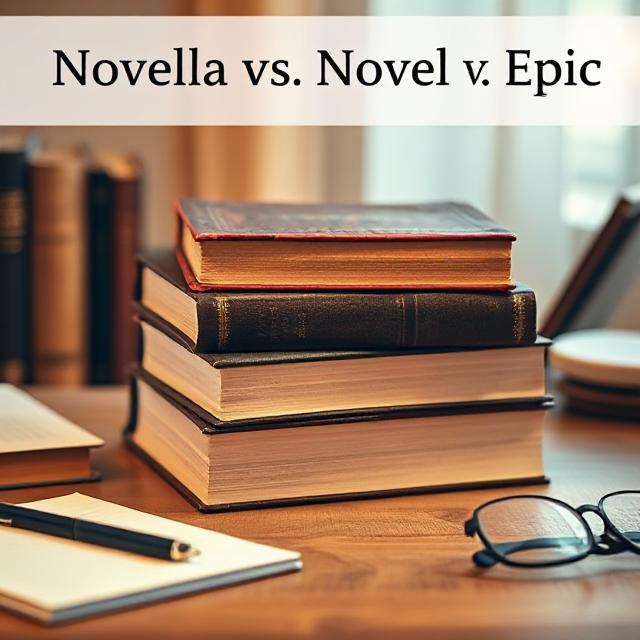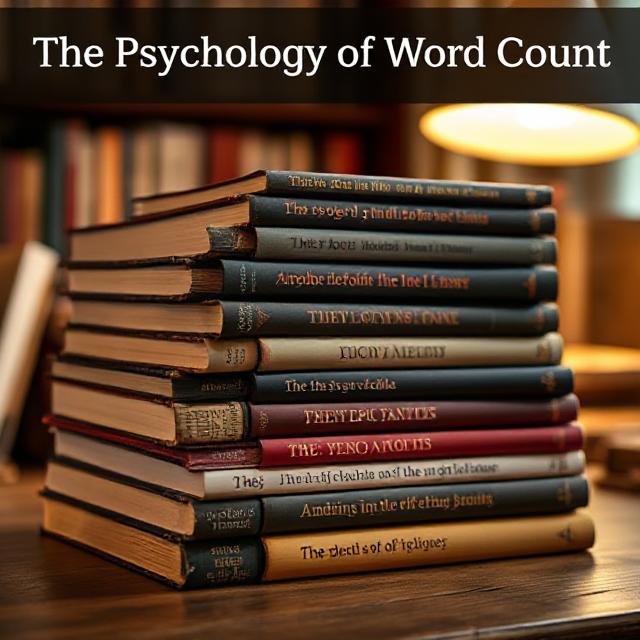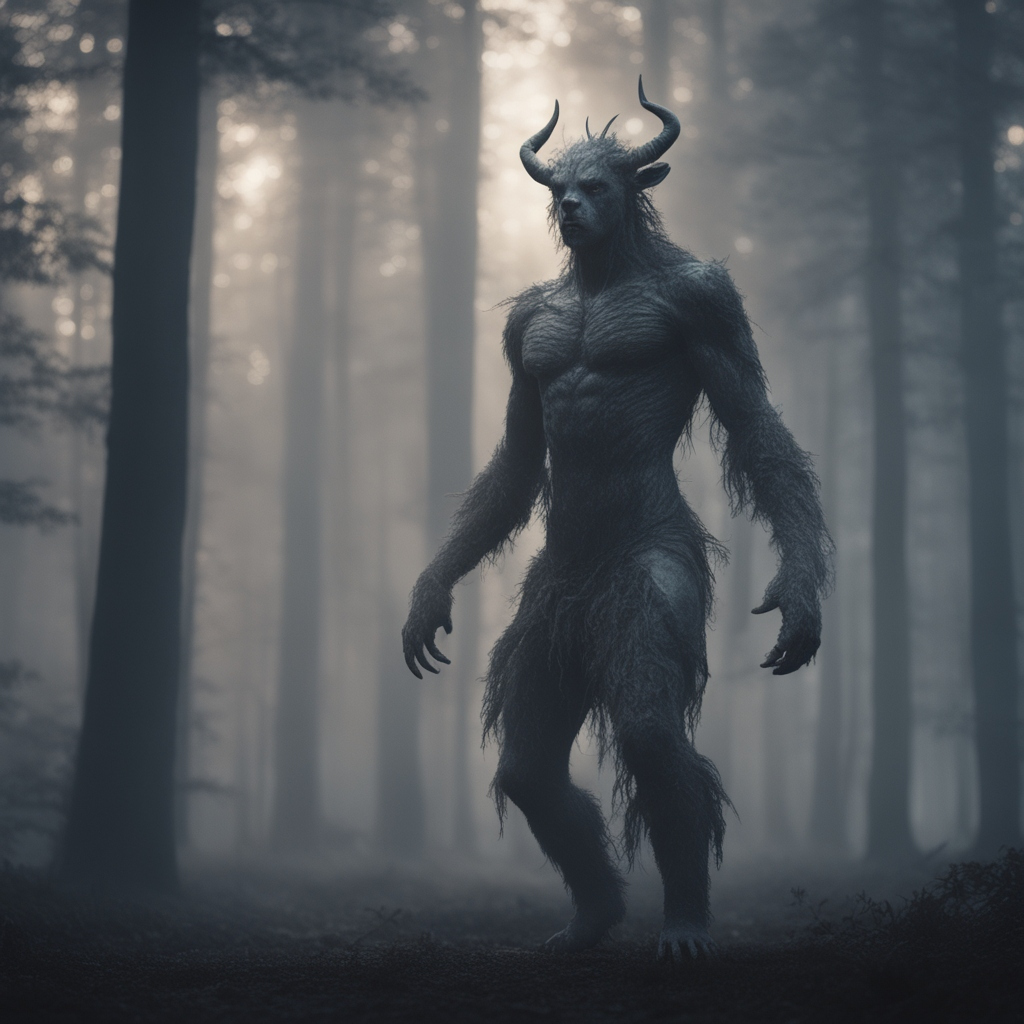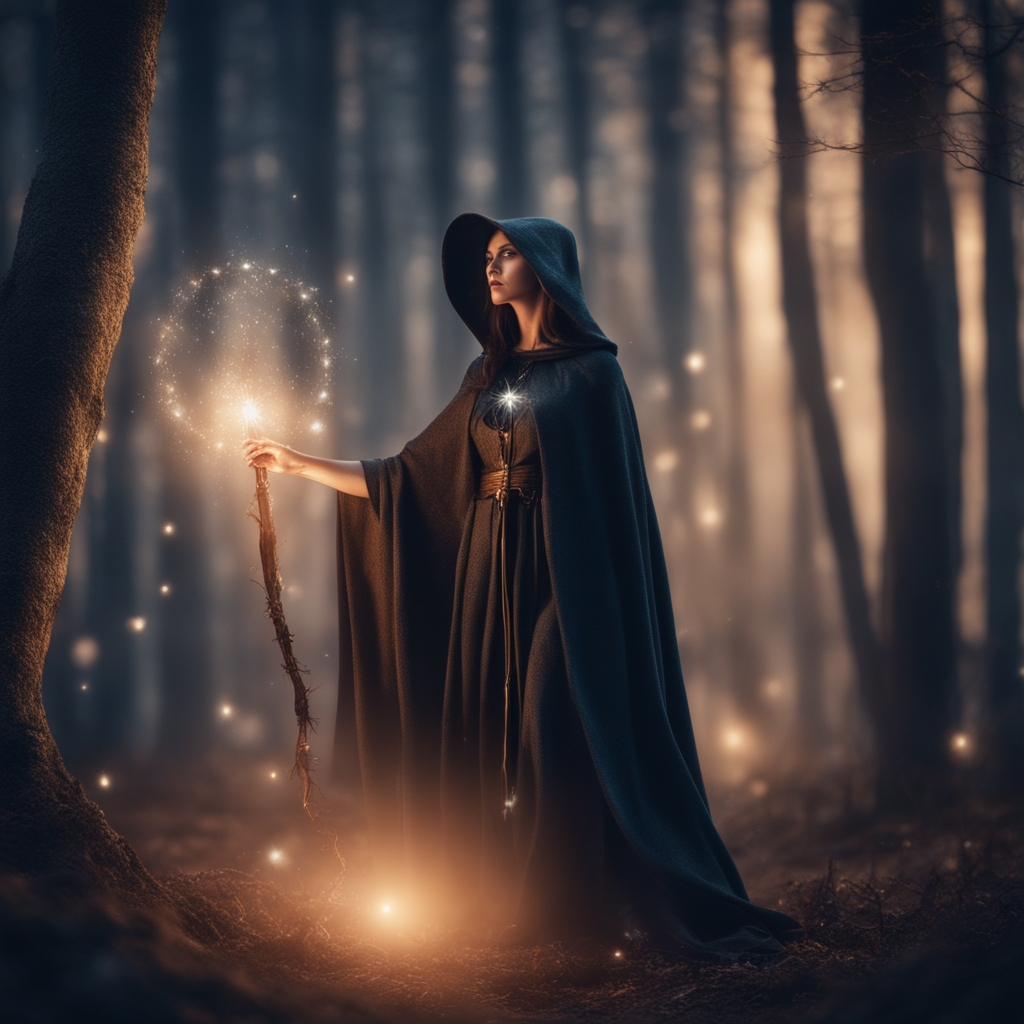Novel Classifications and Word Counts: The Essential Guide for Writers
One of the first things every author needs to understand after finishing their manuscript—but before submitting to agents, editors, or publishers—is how to classify their novel. This means knowing your genre and where your book fits in terms of length. Why? Because being able to clearly state what kind of book you’ve written can make or break your chances in the publishing world.
There are countless genres and subgenres, each with its own expectations and audience. On top of that, word counts vary widely depending on the type of story you’re telling. This guide will help you navigate the basics so you can confidently categorize your work and set realistic goals.
What You’ll Find Here
- Novel Genres: A quick overview of the most popular genres, from Action/Adventure to Young Adult — including a sneak peek at subgenres like Romantasy and Paranormal.
- Word Counts: Understand the standard lengths for flash fiction, short stories, novellas, novels, and epics, plus genre-specific word count guidelines.
- Why It Matters: How genre and word count affect your publishing options and marketing strategy.
- Next Steps: Links to in-depth guides on each genre and detailed advice on word counts.
Quick Genre Overview
|
Genre |
What to Expect |
Typical Audience |
Word Count Range (Approx.) |
|---|---|---|---|
|
Action/Adventure |
Fast-paced, often with danger and thrills |
Mostly adults, shifting to female leads |
70,000–100,000+ |
|
Children’s Books |
Age-specific stories for kids and teens |
Preschool to middle grade |
1,000–55,000 (depending on age) |
|
Erotica |
Explicit romantic and sexual content |
Adults |
50,000–90,000+ |
|
Fantasy |
Magic, mythical creatures, worldbuilding |
Teens to adults |
100,000–150,000+ |
|
Historical |
Set in or involving real historical events |
Adults |
70,000–120,000+ |
|
Horror |
Designed to scare or unsettle |
Adults |
60,000–90,000+ |
|
Literary |
Focus on style, tone, and theme |
Adults, academics |
Varies widely |
|
Mystery |
Crime-solving, puzzles, suspense |
Adults |
60,000–80,000 |
|
Paranormal |
Supernatural elements beyond normal science |
Adults |
60,000–100,000 |
|
Romance |
Love stories, often with happy endings |
Adults, varied |
70,000–90,000 |
|
Science Fiction |
Future tech, space, alternative realities |
Teens to adults |
90,000–150,000 |
|
Thriller |
Suspenseful, high-stakes conflict |
Adults |
70,000–100,000 |
|
Westerns |
Cowboys, frontier life, historical conflicts |
Adults |
70,000–100,000 |
|
Young Adult (YA) |
Coming-of-age stories, teen protagonists |
Teens and adults |
50,000–80,000 |
|
Vampire (Subgenre) |
Vampire-centric stories, cross genre |
Adults and teens |
Varies by genre |
|
Popular/Mainstream |
Fast-paced, plot-driven stories |
Wide audiences |
Varies |
Note: Word counts are approximate and can vary based on publisher or market.
Why Genre and Word Count Matter
- Genre helps agents, publishers, and readers know what to expect. It also guides marketing and shelving.
- Word count affects which publishers will accept your manuscript and whether you hit standard expectations.
- Both help position your book for success in a crowded market.
Need Help?
If you’re still unsure about where your novel fits or how long it should be, consider:
- Downloading our free novel classification cheat sheet - Download NovelClassificationsWordCountsCheatSheet
- Joining our newsletter for regular writing tips and publishing advice
Novel Classifications
Action/ Adventure-
This genre has lots of action and adventure, such as Tom Clancy novels and James Bond. These would be the books in which people are in car chases or are being shot at. While most of the genre is geared toward male protagonists, they are starting to be more geared toward women.
Children's books-
This is a genre geared towards kids in preschool all the way up to eighth grade. This can be a retelling of old fables up to learning moments for a younger audience. Two of the more popular names would be Dr. Seuss or RL Stine. These are usually stories that are more fun for the audience.
Erotica-
This is the genre of sexiness and basically porn in written form. Erotica would be for the people who like 50 Shades of Grey and similar books. The stories are extremely stimulating in a sexual way and have more interpersonal interaction of a flirtatious variety. It can contain fetishes and situations that the normal person would fantasize about.
Fantasy-
The modern form of this genre was started by JRR Tolkien and can be best described as having elements found in Dungeons and Dragons. There is magic in many of these stories. Most of the time there is a lack of technology, though there are hybrids that are a more modern take.
Historical-
This is the genre that delves into history, from books dealing with ancient Sumeria all the way up to the war in Afghanistan. This could be minor inclusions, such as what Clive Cussler includes, or in-depth stories, like what is included with the book series that inspired the show Outlander.
Horror-
The basic premise is that someone is going to die, and most likely in a horrible manner. This can include dealing with Frankenstein's monster to the evil that a truly psychotic person can do to others. Most associate this with lots of gory attacks, but many horror stories are also all about the mental anguish that the monster of the story can bring.
Literary-
This is the genre started by Aristotle and is more of an abstract style that does not fit into other categories. In a sense, poetry is considered literary. The books in this area are more about the tone, technique, and content, over bringing in content such as magic, advanced cultures, or lots of adventures.
Mystery-
Anytime there is something to be solved in a story, this brings elements of this genre into it. The most recognized stories are those of Sherlock Holmes. The more modern variants are stories like Nancy Drew, books by the writer of The Da Vinci Code, or books by Janet Evanovich. There is a lot of asking who did it.
Paranormal-
These are stories with plotlines centered around paranormal events, which come in many forms. Most often, the result is a journey that's terrifying and mind-bending - or, at the very least, thrilling and suspenseful - because of the otherworldly subject matter.
Characters deal with elements that are unexplainable by modern science such as extraterrestrials, ghosts, and superhuman abilities like telekinesis. Paranormal stories often involve chilling conspiracies or premises that make you question your reality. For many readers, it's this unique chill that keeps them returning to the genre.
Romance-
People wanting to read about love between primarily two people read thi the romance genre. Most of these stories are male and females falling in love, but the more modern times have included LGBT stories that allow for more readers. The books may have a sex scene, but this is far from the purpose. The pursuit of love is the main push of the story. romance books typically have happy endings.
Science Fiction-
People who want to read on what is possible if we keep improving science read these books. This could be the melding of minds and space colonization of the Anne McCaffrey Talent's series, or just enjoying the Star Wars Extended Universe books that are no longer canon. People get to read about advanced cultures, mindsets, and technologies to get away from current problems.
Thrillers-
Thrillers are close to being psychological horrors, but have fewer monsters and more evil humans. They are usually intertwined with other genres, which allows for more chances to spice the story with different aspects. There is a lot of suspense and moments that will startle the reader, though they are not done in a jump scare manner.
Westerns-
People wanting to read cowboy and Indian stories or those dealing with old cavalry conflicts. In a way, it is a sub-genre of historical novels, but is extremely popular. The books that many John Wayne movies were based on are this genre. The stories have been given modern twists with them being mixed in science fiction, such as what in the movie Serenity.
Young Adult-
These are the stories for those who are teens, such as the Harry Potter series, the Divergent series, or books by Judy Blume. They are geared specifically to coming-of-age stories that can connect with their specific readers. Many of these novels have attracted older adults, but the main characters are always teens who are learning life.
Vampire -
The vampire genre encompasses everything vampire. It's technically a subgenre. the most common subgenres are romance, horror and thriller. Although, you could certainly have a vampire western, vampire young adult or science fiction/ fantasy book.
Popular, Mainstream, or Commercial Fiction-
A genre that is made to appeal to the largest audience possible, and not geared to be thematically genre-specific. The stories are paced in a speedier fashion that can keep people reading. The plot is far more important than building up the characters of the story. The writers that are known for these stories are Stephen King with his horror, John Grisham with his legal conflicts, and similar writers.
Basic Word Counts
- Flash Fiction - Less than 1,000 words (five pages)
- Short Stories - Maximum of 7,500 words (I've seen magazines accept up to 12,000) (30 to 48 pages)
- Novelettes - Between 7,501 and 20,000 (30 to 80 pages)
- Novellas - Between 20,000 and 40,000 (80 to 160 pages)
- Novels - Between 40,000 and 99,000 (160 pages to 400 pages)
- Epics - Greater than 100,000 words (More than 400 pages)
Advanced Word Counts
- Middle-Grade Students - Somewhere between 20,000 and 55,000.
- Young Adult - Somewhere around 60,000
- Adult Novels - These needs to have substance AKA: A main plot and lots of subplots. They also need to reach between 70,000 and 90,000 words. Some sites say they need to be between 80,000 and 90,000 to be marketable. My first set of queries went out with a 75,000 word count. I've since increased it to 85,000 after getting only one bite and never hearing back.
- Romance - These tend to be between 70,000 and 90,000.
- Science Fiction and Fantasy - Between 100,000 and 150,000. I am venturing to guess they have to be this high due to the fact that the author has to create an entirely new world and sometimes new races and all of that needs descriptions.
- Mysteries - These tend to be between 60,000 and 80,000 words

- Details
- Category: Novel Classifications and Word Counts
- Hits: 1072
- Article Excerpt (Intro): Not every story needs to be a doorstop—or a quick snack. Choosing the right length for your book can affect how readers experience your story, how long it takes you to write, and even how you market it. Whether you’re leaning toward a tight novella, a classic-length novel, or an immersive epic, here’s everything you need to know to pick the perfect word count for your next project.
Read more: Novella vs Novel vs Epic — Which Is Right for You?

- Details
- Category: Novel Classifications and Word Counts
- Hits: 906
- Article Excerpt (Intro): Word count isn’t just a number—it’s a promise. Whether you’re writing a quick novella, a classic-length novel, or an epic saga, the length of your story shapes how readers see it. Here’s how psychology, perception, and page count all come together to influence the reading experience.
Read more: The Psychology of Word Count: How Book Length Shapes Reader Expectations

- Details
- Category: Novel Classifications and Word Counts
- Hits: 763
- Article Excerpt (Intro): Popular, mainstream, or commercial fiction is designed to reach a wide audience, providing entertainment, emotional engagement, and accessible storytelling. These books often prioritize plot, pacing, and relatable characters over literary experimentation or avant-garde techniques. From page-turning thrillers to heartfelt dramas, this genre aims to captivate readers and keep them coming back for more. Let’s explore what makes commercial fiction resonate, the key elements of these stories, and tips for writing with mass appeal.
Read more: Popular, Mainstream, and Commercial Fiction: Engaging Stories for Wide Audiences

- Details
- Category: Novel Classifications and Word Counts
- Hits: 845
- Article Excerpt (Intro): Shapeshifter fiction delves into the complexities of transformation, identity, and hidden power. Protagonists often struggle to balance human lives with supernatural instincts, navigating danger, secrecy, and morality. These stories span urban, natural, and fantastical settings, offering suspense, adventure, and the thrill of the unknown.
Read more: Shapeshifter Fiction: Identity, Transformation, and Supernatural Adventure

- Details
- Category: Novel Classifications and Word Counts
- Hits: 624
- Article Excerpt (Intro): Witch and wizard fiction immerses readers in worlds of magic, spells, and mystical adventures. These stories explore the boundaries of power, knowledge, and morality, often featuring protagonists mastering their magical abilities. From magical academies to hidden covens, witch fiction offers suspense, wonder, and fantastical escapism.
Read more: Witch and Wizard Fiction: Magical Worlds and Supernatural Adventure






